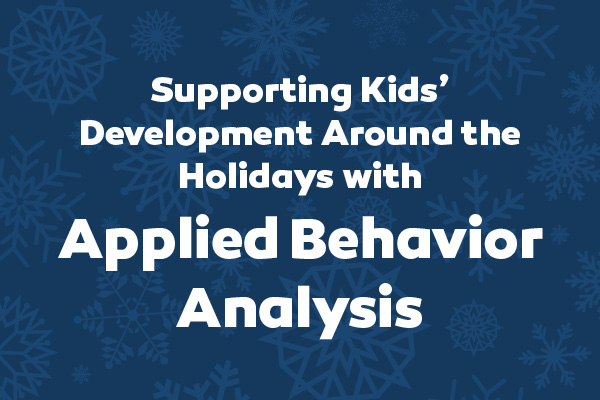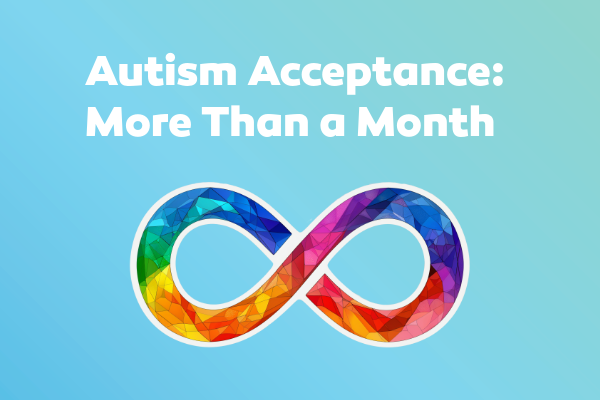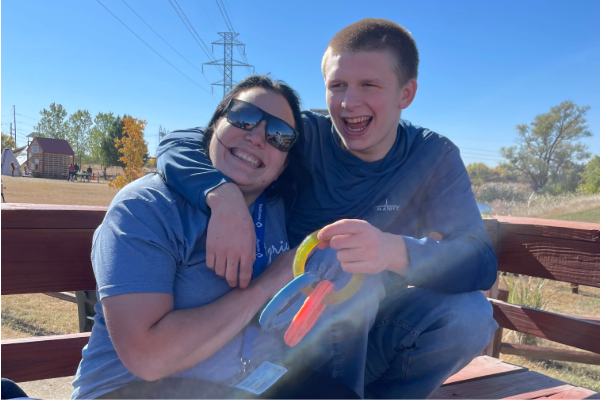2 MIN READ
Applied Behavior Analysis Techniques to Help Your Child Succeed

The holiday season is an exciting time, but it can also be overwhelming for children, especially those with autism, sensory processing challenges, or other neurodevelopmental disorders. Applied Behavior Analysis (ABA) offers strategies to help children navigate holiday activities while maintaining routines and fostering positive experiences.
ABA focuses on understanding behavior and creating structured, individualized strategies to support children. During the holidays, the changes in routine, crowded gatherings, and new sensory experiences can lead to anxiety or challenging behaviors. ABA principles, such as reinforcement and skill-building, can help children adapt while still enjoying the season.
ABA Tips for the Holidays
Choices and alternatives
Giving options helps children feel in control when their lack of routine may cause them distress. For example, offering the choice between playing outside or completing a craft, or which activity they want to do first, puts them in the driver's seat. However, you have to be okay with whatever choice your child picks, so don’t offer an option like “go home” at a holiday event if that’s not an outcome you’d want to follow through with.
Schedules and routines
Many children with neurodevelopmental disorders, and even kids without diagnoses, thrive with a structured routine. A visual schedule can also be extremely helpful. Use pictures on a calendar to show school, home, and travel days along with holidays or special events. If a visual schedule isn’t going to work for your family, a checklist you complete with your child each day would also help them maintain a routine outside of their normal schedule.
Supportive items
Having familiar comfort items on hand can make a big difference during holiday events. Whether it’s a favorite toy, blanket, or pair of headphones, these items can provide a sense of security in new or overstimulating environments. For children sensitive to sound, noise-canceling headphones can be particularly helpful during loud gatherings.
Plan ahead
Planning ahead is key to reducing holiday stress for you, your child, and other loved ones. If you’re visiting a family member for an afternoon, ask if they have a quiet, safe space your child can use to step away from the crowd. Are there rooms/spaces that are off-limits? Sending a text or having a quick phone call ahead of time ensures your child's needs will be met and eases stress for hosts who want every guest to have a good time.
Have patience
Holiday traditions might look different for your family — and that’s okay! Consider alternative options that better fit your child’s needs, reading their cues, and preparing for potential behaviors. Give your child time to adjust to new environments or routines and be flexible if plans need to change. Celebrate small successes, like trying a new food or participating in an activity, and offer positive reinforcement. Remember, it’s okay to take breaks and focus on what works best for your family.
The holidays are a wonderful time to bond and create memories. By using ABA strategies, you can help your child feel supported and included, creating a joyful and stress-free season for the whole family.
With preparation, patience, and the right tools, every child can thrive during the holidays!
Would your child benefit from ABA? Speak with your pediatrician about a referral and schedule an appointment with Heartspring by calling 316-634-8701.




